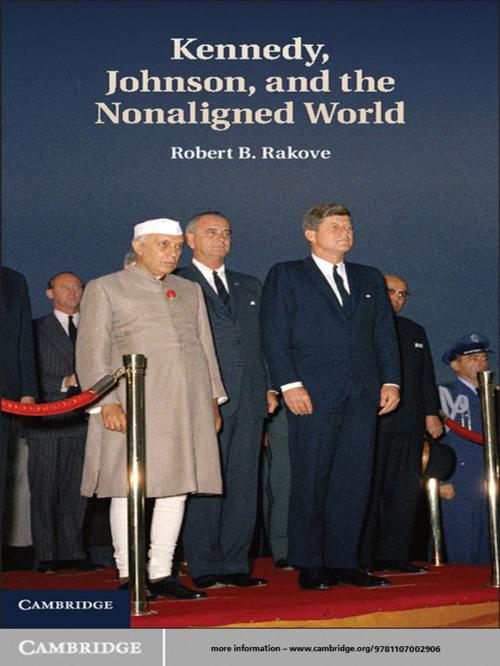Kennedy, Johnson, and the Nonaligned World
Nonfiction, History, Modern, 20th Century, Social & Cultural Studies, Political Science| Author: | Robert B. Rakove | ISBN: | 9781139793667 |
| Publisher: | Cambridge University Press | Publication: | October 8, 2012 |
| Imprint: | Cambridge University Press | Language: | English |
| Author: | Robert B. Rakove |
| ISBN: | 9781139793667 |
| Publisher: | Cambridge University Press |
| Publication: | October 8, 2012 |
| Imprint: | Cambridge University Press |
| Language: | English |
In 1961, President John F. Kennedy initiated a bold new policy of engaging states that had chosen to remain nonaligned in the Cold War. In a narrative ranging from the White House to the western coast of Africa and the shores of New Guinea, Robert B. Rakove examines the brief but eventful life of this policy during the presidencies of Kennedy and his successor, Lyndon Baines Johnson. Engagement initially met with real success, but it faltered in the face of serious obstacles, including colonial and regional conflicts, disputes over foreign aid and the Vietnam War. Its failure paved the way for a lasting hostility between the United States and much of the nonaligned world, with consequences extending to the present. This book offers a sweeping account of a critical period in the relationship between the United States and the Third World.
In 1961, President John F. Kennedy initiated a bold new policy of engaging states that had chosen to remain nonaligned in the Cold War. In a narrative ranging from the White House to the western coast of Africa and the shores of New Guinea, Robert B. Rakove examines the brief but eventful life of this policy during the presidencies of Kennedy and his successor, Lyndon Baines Johnson. Engagement initially met with real success, but it faltered in the face of serious obstacles, including colonial and regional conflicts, disputes over foreign aid and the Vietnam War. Its failure paved the way for a lasting hostility between the United States and much of the nonaligned world, with consequences extending to the present. This book offers a sweeping account of a critical period in the relationship between the United States and the Third World.















